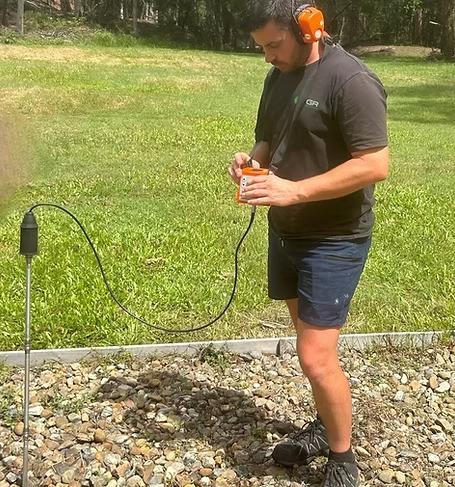Can Water Leak Detection Really Save You from Costly Repairs?

When most people think about home maintenance, they imagine tasks like painting walls, cleaning gutters, or replacing appliances. But one silent issue often gets ignored until it is too late: water leaks. These leaks may not always be visible, yet they can cause extensive damage to a property if not handled in time. This is where professional water leak detection becomes so valuable. By identifying leaks before they spiral into bigger problems, you can avoid major repair bills and keep your property in top condition.
Why Do Water Leaks Happen?
Water systems are constantly under pressure, and over time, wear and tear can take its toll. Leaks may occur in both old and new homes for a variety of reasons:
-
Pipe corrosion from age or mineral buildup
-
Damaged seals around appliances such as washing machines and dishwashers
-
High water pressure that stresses joints and valves
-
Underground shifting of soil that displaces pipes
-
Improper installation that leaves weaknesses in the plumbing system
The challenge with leaks is that they are often hidden behind walls, beneath floors, or under concrete slabs. You may not see water pooling immediately, but the damage could already be spreading.
What Are the Signs That Point to a Leak?
It can be tricky to detect leaks without professional help, but there are common red flags that homeowners should watch out for:
-
Water bills rising without an increase in usage
-
Patches of dampness or discolouration on walls and ceilings
-
Floors that feel unusually soft or warm in certain areas
-
Unexplained drops in water pressure
-
Persistent mouldy smells in enclosed spaces
When these warning signs appear, arranging water leak detection is the smartest step forward.
How Do Professionals Detect Leaks?
Gone are the days when plumbers had to dig up entire sections of flooring or walls to find a leak. Today’s specialists use advanced technology that makes the process non-invasive and precise.
Acoustic Detection
This technique involves listening devices that pick up the sound of water escaping from pressurised pipes.
Thermal Imaging
Infrared cameras reveal subtle changes in temperature caused by moisture, allowing experts to see leaks behind walls or under flooring.
Pressure Testing
By isolating sections of pipework and testing their pressure, plumbers can pinpoint the exact area where water is escaping.
Gas Tracing
A harmless gas is introduced into the pipes, and detectors then locate where it seeps out, identifying the leak accurately.
These methods not only save time but also prevent unnecessary damage to your property.
Why Is Early Leak Detection So Important?
Many people delay dealing with leaks because they seem minor at first. However, even small leaks can lead to serious issues if neglected. Early detection matters because it:
-
Prevents hidden water damage that weakens structures
-
Stops mould growth that threatens indoor air quality
-
Reduces water bills by stopping wastage
-
Protects household belongings from dampness and rot
-
Maintains the overall value of the property
In short, a proactive approach to leak detection saves both money and stress.
Is DIY Leak Detection Reliable?
Some homeowners attempt to handle leak detection themselves by checking taps and fixtures or placing dye in toilet tanks. While this may reveal surface-level leaks, hidden ones often go undetected. Without the right tools and training, it is nearly impossible to locate leaks buried underground or behind walls.
Relying on professional expertise ensures accuracy. Specialists bring years of experience and access to advanced technology, ensuring your plumbing system is assessed thoroughly. Calling experts for water leak detection provides a long-term solution rather than a temporary fix.
What Happens After a Leak Is Found?
Once the source of the leak is located, the next step is repair. Depending on the situation, the plumber may recommend:
-
Replacing worn-out pipes or fittings
-
Sealing joints and connections
-
Installing new parts if appliances are causing the issue
-
Applying waterproofing measures to prevent further dampness
The main benefit of accurate detection is that only the faulty section is repaired, avoiding unnecessary work and costs.
Can Leaks Be Prevented in the Future?
While not all leaks can be avoided, preventive care significantly lowers the risk. Here are a few tips:
-
Have your plumbing system inspected annually
-
Keep an eye on your water usage and monthly bills
-
Replace old pipes before they reach the end of their lifespan
-
Avoid extremely high water pressure by installing regulators
-
Service water-dependent appliances regularly
By adopting these practices, you can reduce the likelihood of leaks occurring again.
The Bigger Picture
Leaks may seem like small inconveniences, but they have a ripple effect. From damaging the structural integrity of your home to encouraging mould growth that affects health, the risks are far greater than most people realise. Detecting and repairing leaks early ensures a safer living environment, conserves precious water resources, and protects your finances.
Final Thoughts
Water leaks are a silent threat that many homeowners overlook until the problem becomes too obvious to ignore. The good news is that with modern leak detection methods, you do not have to wait for visible damage before taking action. Scheduling a professional inspection ensures peace of mind and prevents expensive surprises down the line.
By making leak detection a priority, you are not only protecting your property but also investing in its long-term value. A small step today could save you from large-scale repairs tomorrow.
- Art
- Causes
- Crafts
- Dance
- Drinks
- Film
- Fitness
- Food
- Jogos
- Gardening
- Health
- Início
- Literature
- Music
- Networking
- Outro
- Party
- Religion
- Shopping
- Sports
- Theater
- Wellness


